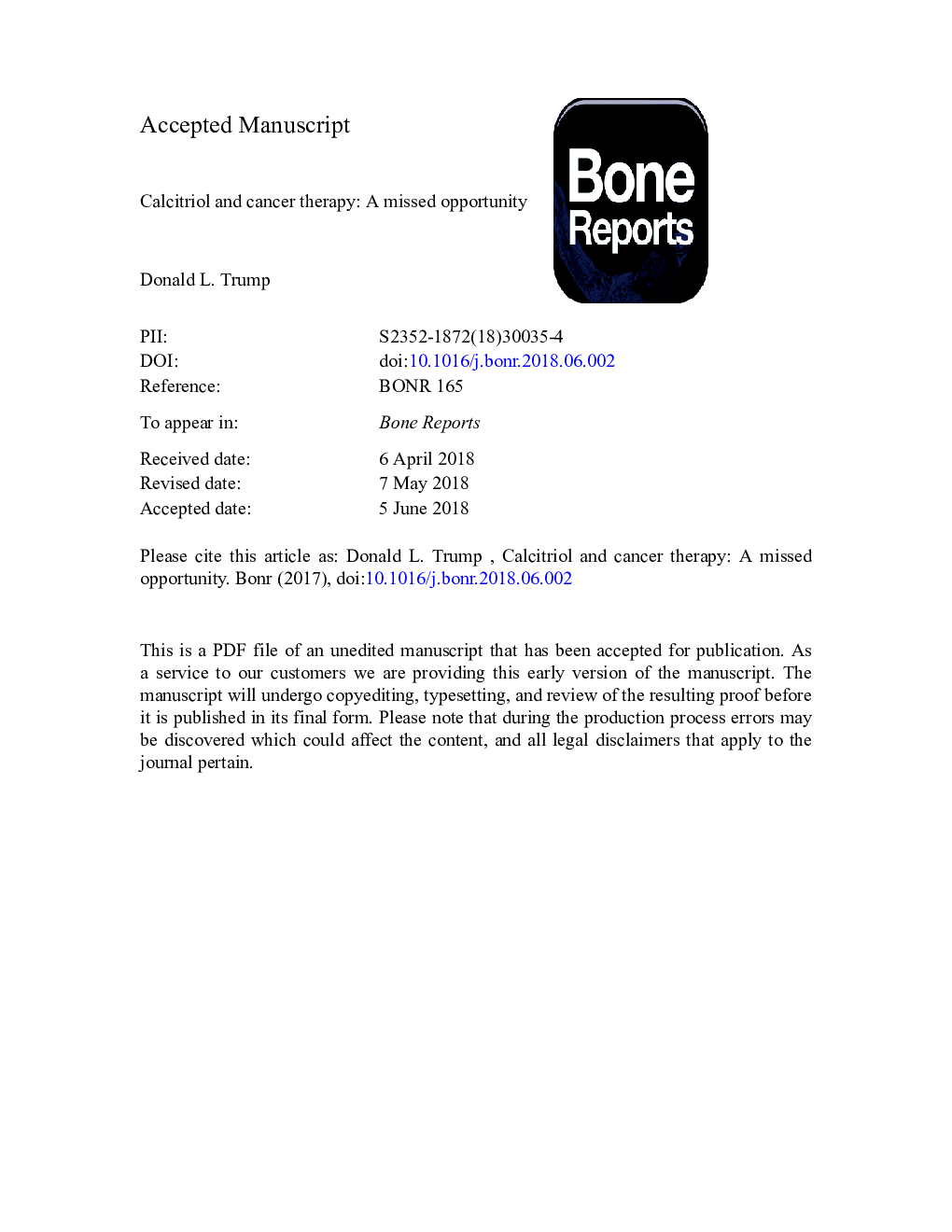| Article ID | Journal | Published Year | Pages | File Type |
|---|---|---|---|---|
| 8627548 | Bone Reports | 2018 | 44 Pages |
Abstract
The vitamin D receptor is expressed in most tissues of the body - and the cancers that arise from those tissues. The vitamin D signaling pathway is active in those tissues and cancers. This is at least consistent with the hypothesis that perturbing this signaling may have a favorable effect on the genesis and growth of cancers. Epidemiologic data indicate that vitamin D signaling may be important in the initiation and outcome of a number of types of cancer. Many studies have shown that calcitriol (1,25 dihydroxycholecalciferol) and other vitamin D compounds have antiproliferative, pro-apoptotic, anti-cell migration and antiangiogenic activity in a number of preclinical studies in many different cancer types. Unfortunately, the assessment of the activity of calcitriol or other vitamin D analogues in the treatment of cancer, as single agents or in combination with other anticancer agents has been stymied by the failure to adhere to commonly accepted principles of drug development and clinical trials conduct.
Keywords
Related Topics
Life Sciences
Biochemistry, Genetics and Molecular Biology
Endocrinology
Authors
Donald L. Trump,
